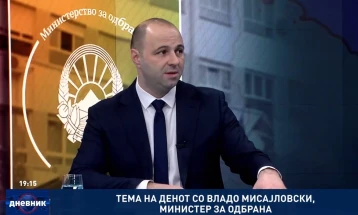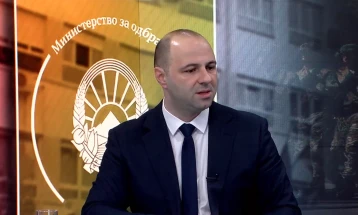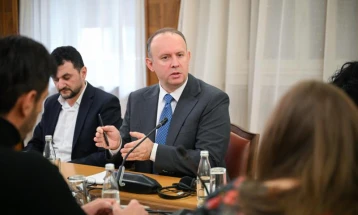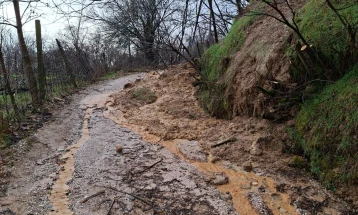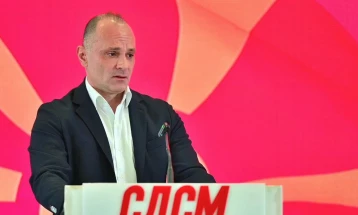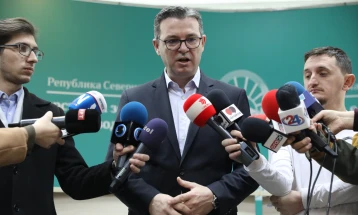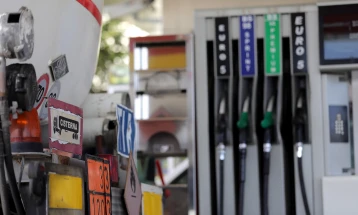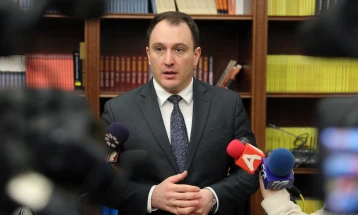ESM and KfW sign EUR 20 million grant agreement for energy projects
- Power Plants of North Macedonia (ESM) and the German KfW bank signed Monday a EUR 20 million grant agreement for the construction of the second stage of the “Bogdanci” wind park and the third stage of the revitalization of the six large hydropower plants Vrutok, Vrben, Raven, Tikvesh, Shpilje and Globochica.
- Post By Angel Dimoski
- 17:01, 18 March, 2024
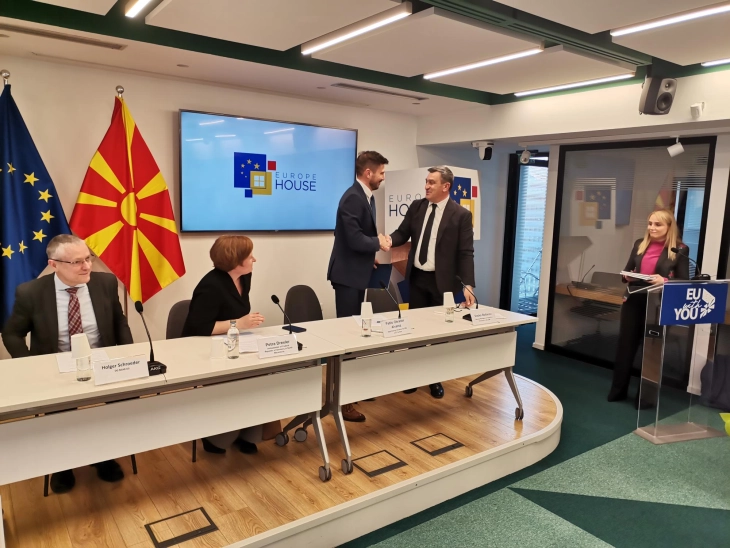
Skopje, 18 March 2024 (MIA) – Power Plants of North Macedonia (ESM) and the German KfW bank signed Monday a EUR 20 million grant agreement for the construction of the second stage of the “Bogdanci” wind park and the third stage of the revitalization of the six large hydropower plants Vrutok, Vrben, Raven, Tikvesh, Shpilje and Globochica.
With the construction of the second stage of wind park “Bogdanci” the project will be fully completed with a total installed power of 50 megawatts. The project also includes the construction of access roads, as well as a 20-kilovolt grid.
The third stage of the revitalization of the six hydropower plants involves the replacement of aged equipment in order to reduce the downtime due to unplanned maintenance, to boost the reliability and stability of the system, and protect the environment.
“Today’s signing of the grant agreements represents yet another recognition of the Government’s successful policies in the area of decarbonization of the energy sector, as well as ESM’s commitments to build a sustainable energy sector that possesses the capacities necessary to address the challenges of global economic flows,” said Vasko Stefanov, ESM’s Director General, after the signing.
Stefanov stressed that the existing “Bogdanci” wind park, in the 10 years that it has been operational, has produced over 1000 GWh of electricity, exceeding the production plan outlined in the project and studies for the realization of the project.
“The ‘Bogdanci’ wind park isn’t only an investment in energy, it is also an investment in our economy, in the future of our citizens. The realization of the second stage will contribute to the creation of new jobs, the development of the local community and the efforts to boost the energy infrastructure,” Stefanov said.
The ESM director said the country’s renewable energy efforts not only make North Macedonia a leader in the region, but also contribute to the global idea for a transition to sustainable and clean energy.
“With the support of our partners and international financial institutions, here I would mention KfW, but also EBRD, EIB and others active in the region, we are working on a serious investment plan in order to successfully implement an energy transition not only of ESM, but also of the Macedonian energy system,” stressed Stefanov.
Holger Schroeder from the European Union’s Directorate-General for Neighbourhood and Enlargement Negotiations, said the energy crisis has shown the importance of investing in renewables, noting that North Macedonia is a leader in the field of energy transition in the Western Balkans.
“The two projects that we are talking about today will help reduce the emission of CO2, which is good for the economy, but also for the wellbeing of the citizens,” said Schroeder.
Schroeder said the European Union will continue to provide support for projects renewable sources of energy.
“The modernization and climate transformation of the energy sector with the support of Team Europe is crucial for the EU accession process. The EU will continue to be a strong partner in providing assistance for the implementation of projects in renewable energy with the goals for the promotion of economic growth, environmental protection and to bring you close to the Union in the end,” said Schroeder.
The German Ambassador to North Macedonia, Petra Drexler noted that the “Bogdanci” wind park has shown it is possible for complex capital investments to be realized in the region.
“With the realization of the second stage the capacity will produce electricity for around 22.000 households, preventing the emission of around 15.000 tons of CO2. The ‘Bogdanci’ wind park contributes to the greening of the energy sector, and more importantly it also makes it more sustainable,” said Drexler.
Pablo Obrador, the head of KfW’s division of energy and transport in Southeast Europe and Turkey, said investments in the energy transition are investments in the future. He stressed the bank would continue to support the country’s decarbonization as much as possible, adding that there is no other option.
